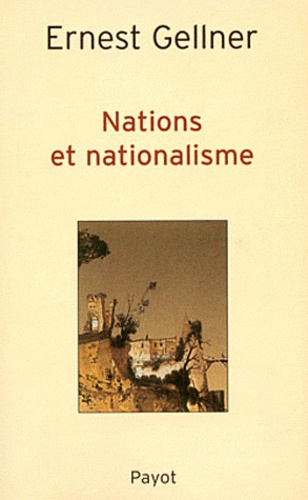

In all contexts nationalism has helped eradicate the local and traditional while giving rise to the mass man. A prominent example of this comes from the world of Islam, where the emergence of modern states has led to the eradication of local forms of folk Islamic expression and the centralization of power by text-driven religious authorities tied to national governments. The basis of the nation is inevitably literate, "high" cultures that are capable of both existing and communicating outside of local contexts and homogenizing large groups of people across time and space. One of the great ironies of the modern nation is that it liquidates local "low" folk cultures in the name of championing them.

Whoever controls the official educational system determines the shape of the citizenry. He is structurally deterministic in his view of human behavior en masse and it’s difficult for me to disagree. “Modern society is one in which no sub-community, below the size of one capable of sustaining an independent education system, can any longer reproduce itself,” Gellner writes. In a modern nation, any attempts to create alternate educational structures (and thus separate types of people) will inevitably dissolve into the oceanic culture produced by the state educational apparatus. In practice it serves the purpose of manufacturing for the state the type of human being that fits its needs. This system is a lumbering, unconscionably expensive apparatus that can only be administered by an entity the size of a state. One of the key requirements for creating a nation is control of the education system. Appropriately, this is also the type of person its institutions produce. To put it simply the modern nation is characterized by homogeneity, anonymity and functional literacy.

As defined by Gellner, the nation is a unit large enough to reproduce itself through education, ideologically bound to a single literate culture and consisting mostly of deracinated ("gelded"), interchangeable people who can be moved with little retraining between the various occupations demanded by society. Into this breach emerged what we call nationalism, which remains the system that the overwhelming majority of human beings live under today.

The sudden emergence of industrial society required a new type of person as well as a new organizing principle to support itself.


 0 kommentar(er)
0 kommentar(er)
